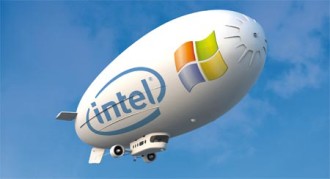
A new report by analyst outfit Transparency Market Research says that the global smart home M2M market is tough to get into.
The report has the catchy and concise title “Smart Home M2M Market (Technology – Wireless (Wi-Fi and Cellular) and Wired; Application – Access and Security Control, Energy and Climate Management, Home Entertainment, and Lighting) – Global Industry Analysis, Size, Share, Growth, Trends, and Forecast, 2017-2025.”
It claims the industry is fragmented in nature on account of the presence of many large vendors operating in various industry verticals.
The market is made up of platform providers, telecommunications operators, chip providers, device manufacturers, and original equipment manufacturers (OEM). To make matters worse there is stiff competition including some of the big names.
These include Cisco, AT&T, Gemalto, Intel, Vodafone, Telit, Deutsche Telekom, Sprint, KORE Wireless and Sierra Wireless.
The report said that the global smart home M2M market will likely expand at a robust 13.3 per cent CAGR between 2017 and 2025 to reach a value of $16.316 million by 2025 from $5.421 million in 2016.
Depending upon applications, the global smart home M2M market can be divided into energy and climate management, access and security control, home entertainment, and lighting, among others, including M2M technology for connected wellness and smart appliances.
At present, the energy and climate management segment dominates with a leading share. In 2016, the segment held over a fourth of the share in the market.
Geographically, North America, South America, Europe, Asia Pacific, and the Middle East and Africa are the key segments of the global smart home M2M market.
North America of them, held a leadings share of 35 per cent in 2016. The region’s expansion has been driven primarily by the US.
Knowledge about the benefits of home automation, widespread availability of different home automation products, concentration of numerous vendors, and easy availability of skilled personnel required for home automation have helped catalyse growth in the North America market.
At the forefront of driving growth in the global smart home M2M market is the swift uptake of smart home security systems.
The report said that traditional systems are mainly operated manually and have several disadvantages.
Smart home security systems, with enhanced features such as text message based motion detection notifications, remote monitoring of residential property, and automatic opening of doors and windows when smoke alarm is sounded, helps to overcome those disadvantages.
Further, the growing applications of smart appliances such as vacuum cleaners washing machines, HVAC systems, kitchen equipment, televisions, etc., lighting systems, and other connected consumer electronics have also served to bolster the smart home M2M market globally.
“Such devices are mostly connected to the Wi-Fi system of a home and can be controlled through a smart phone application or via a remote control among other systems.
Owing to such advantages, the demand for smart appliances is gaining popularity across different geographic locations,” the report said.
What is holding the global smart home M2M market back are concerns over breach of security and compatibility issues with legacy systems.
The continuous advancement in technology, falling prices of semiconductor devices and growing adoption of home automation can be expected are expected to create new avenues for growth in the market, the report said.
 Software King of the World, Microsoft’s Satya Nadella has been insisting that the private versus public cloud debate is over and hybrid infrastructure is the ultimate winner.
Software King of the World, Microsoft’s Satya Nadella has been insisting that the private versus public cloud debate is over and hybrid infrastructure is the ultimate winner.


















